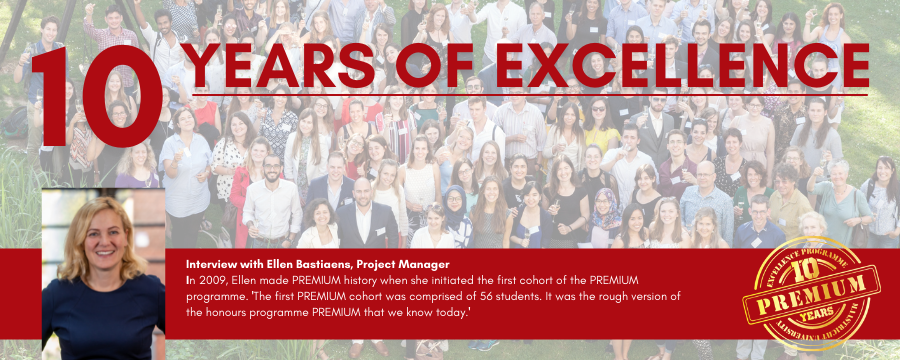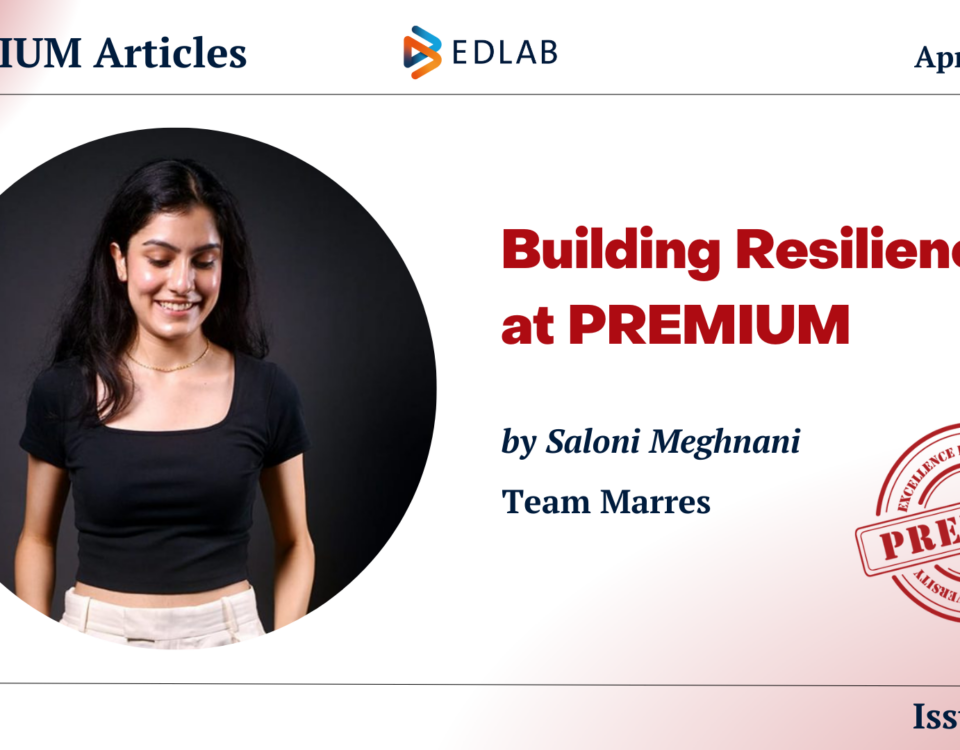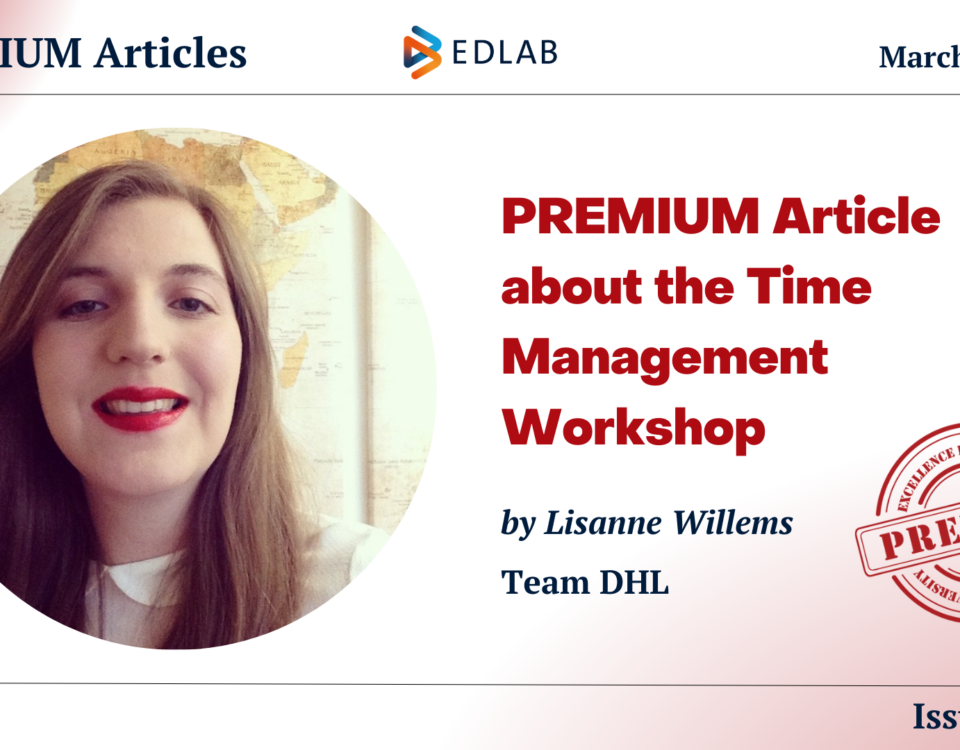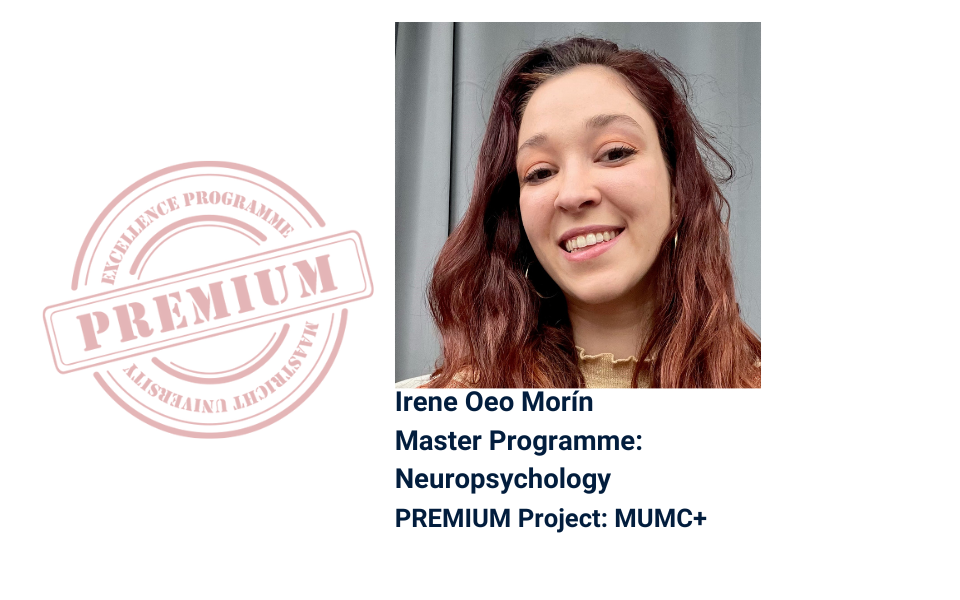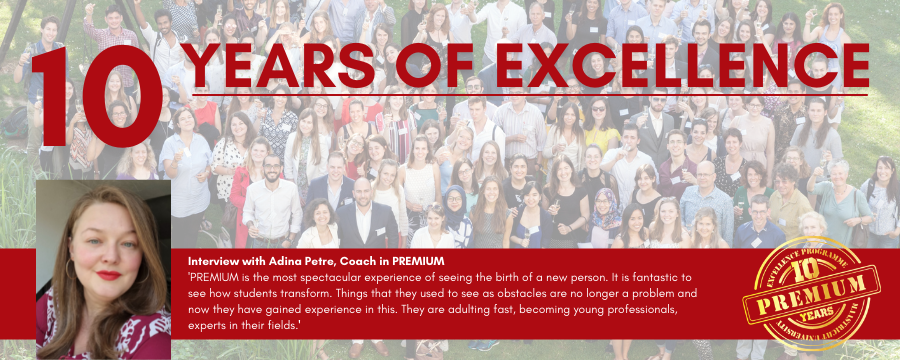
10 Years of PREMIUM – A decade of Excellence
21-06-2021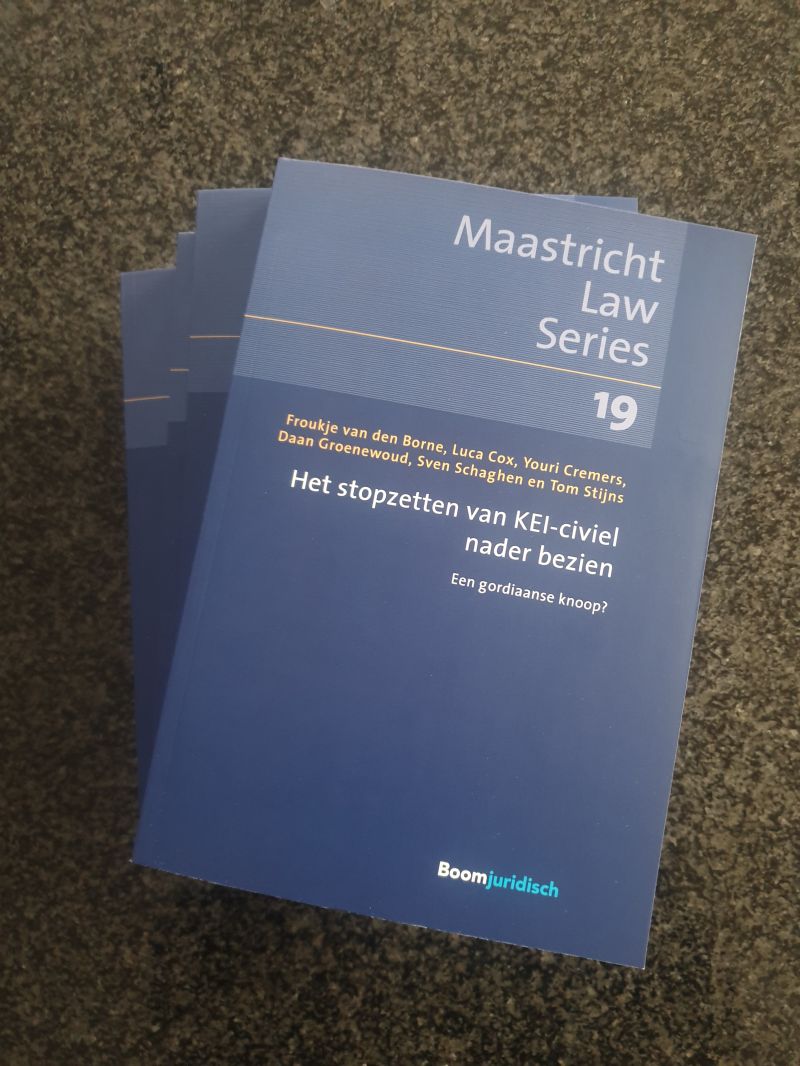
MaRBLe experience: a unique addition to the regular curriculum
12-11-2021In honor of 10 years of PREMIUM, we look back on what a decade of PREMIUM has meant for our alumni, coaches, mentors, clients and trainers.
10 years of Excellence and 11 interviews with important parties for the PREMIUM programme, what a ride it has been! And what a way to close this wonderful journey and finally speak with Ellen Bastiaens, one of the founding members of PREMIUM. In 2009, Ellen made PREMIUM history when she initiated after months of deliberation the first cohort of the PREMIUM programme. ‘I was coordinating it together with a colleague of mine at Academic Affairs. After 9 months of careful consideration, there was a point when I said: we are going to start!’. The first PREMIUM cohort was comprised of 56 students. It was the rough version of the honours programme PREMIUM that we know today.’
‘I even had to find an additional client for the programme since we had more students than projects at that point. Now it is the other way around; clients appreciate the work student deliver and are eager to submit projects’.
‘From there, we started to develop the programme. We made disruptive changes such as setting up manuals for students and mentors, but we also made incremental changes such as improving communication. After 5 years, the honours programme became integrated into EDLAB and we entered the next phase in professionalism.’
A touch of PREMIUM history
In 2010, Ellen was working as a coordinator for the MaRBLe programme, one of the excellence programmes at UM. At one point, the opportunity became available to submit proposals for an honours programme for Master students. Jeroen van Merrienboer, full professor of Learning and Instruction at Maastricht University and Research Director of the School of Health Professions Education (SHE), was one of the founding fathers who developed the concept of PREMIUM.
Important was that students from different faculties would work together on projects from a real-life client. The students would receive coaching and would be supported by the programme to develop skills and competencies. All these components can be found in the initial concept planning of PREMIUM, and still are part of the programme today.
From your perspective, how has PREMIUM grown over the past few years?
‘At first, it was an experimental project. We had to work with the rules within UM and find our way through this. It was the first phase of pioneering and exploring. One of the developments in this phase, for example, was when we changed the workload. At first, the PREMIUM programme was worth 10 ECTS and students assumed they would receive these ECTS. PREMIUM is an extracurricular programme though so we changed this to 250 hours of workload. By keeping the programme extracurricular, we could proceed with that level of interdisciplinary.
The first years were really about pioneering, exploring and discussing with faculties and official bodies to establish the programme and make it work. It was about breaking boundaries but also about setting boundaries; we had a philosophy and we did not want to change that.
Then, we entered a phase where we had a more stable setting. We had found some good workshops leaders, great coaches to work with and worked on incremental changes. The next phase arrived when Fabienne Crombach took more the lead and worked on a better connection with the students.
Now, we are at the phase where the programme is matured into a full-grown, educational concept. It has settled down now. Nevertheless, it is a continuous process and the programme keeps on being further developed and innovated.’
What was for you the biggest change that the PREMIUM programme has gone through?
‘A few things. One of these things was improving the whole selection procedure. It is a hell of a job, I have gone through it twice! First, the selection was letter-based and students had to send in application letters and were interview by PREMIUM staff members. Now, and Fabienne had a great doing in this, it is more peer-based and reflects the real-world selection. Students have to send in a written essay and their LinkedIn profile. Next, the students have to interview their peers and vice-versa and have to complete an assignment in a team setting.
Also, setting up these large events that take place at the beginning and the end of the programme has created additional value.’
UM offers a wide variety of honours and excellence programmes. Since you were also involved in other excellence programmes such as MaRBLe; can you tell us what differentiates PREMIUM from other educational programmes?
‘The PREMIUM programme is for a different type of student. MaRBLe is a programme which is there for the research student who particularly is into research. It is really about engaging students in creating more curiosity and exploration. MaRBLe gives more credits but is also officially part of the curriculum.
Where MaRBLe is more about acquiring knowledge, PREMIUM on the other hand is about applying academic knowledge to real questions. PREMIUM is interdisciplinary, extracurricular and designed for master students. You can find the differences in the maturity of the students but also the focus and the scope of the programmes.
Honours+ was developed at the request of bachelor students who wanted to meet students from other faculties. It was an interesting process to find the formula of the programme it is today. Some faculties did not see the benefit of integrating Honours+ into their faculty honours programme and making students aware that it was part of the faculty honours programme. Another real issue was, and it still is, the fact that we cannot select the students ourselves. The students needed those credits for their programme and it was not voluntarily. Now, Honours+ is more on a voluntary basis. In my belief, with all the varieties we had, this is better for both the student and the programme.
You can find the difference between Honours+ and PREMIUM in the level of professionalism of the students. Honours+ students are still students learning in every aspect. PREMIUM students have already gone through internships, the process of writing a thesis, group projects. They have matured more professionally whereas Honours+ students still are finding their way in this respect.’
Since you are quite familiar with the term Innovation as a Project Manager: What will PREMIUM look like in 10 years?
‘In my belief, PREMIUM is an educational concept that UM can be proud of. More exposure should be given to the fact that we have this programme at UM; clients are lining up to participate! It connects UM students to the world around us – the locals and the big and small businesses. We bring something to the community.
In 10 years, UM will still be a campus-based university and hopefully, programmes will go back to normality and workshops will take place at EDLAB again. EDLAB will be the vibrant heart that has everything to do with education and innovation. The honours programmes will keep on flourishing as a formula to facilitate students in developing skills, knowledge and competencies.
Finally, PREMIUM will continue to grow and the honours programmes serve as a pilot for innovation which will be in turn implemented back at the universities.’
The 20/21 PREMIUM cohort has had a more challenging programme than other years (since most of programme was online). What powerful advice would you give to these PREMIUM graduates?
‘I advise students to use this online honours programme experience as a benefit in their communication with future employees and on their resume. You have learned to show more flexibility and adaptability and you should incorporate this. You have learned how to work in teams and brainstorm in an online setting, and the world will become more and more online. You have done an honours programme apart from your regular curriculum, even in an online modus, and learned so many things. It has given you strength. This should be your key message.’
Bonus question: What is your best PREMIUM memory so far?
‘From my senior coordinator role perspective, it was inspiring to see the perfect synergy between Fabienne Crombach and Emma Dekker (programme coordinators). They brought in a lot of energy and also brought this to the programmes. I am proud that I have brought PREMIUM to a nice 7 and they have brought it to a 9 or 9.5 even.
Another good memory of mine was during the Closing Event in Novotel, where there was a lot of positive energy and positive people. Fabienne and I sat along the Maas with a good glass of wine and there was this natural moment when I said: ‘I think it is time for me to let go’ and Fabienne said almost at the same time ‘it is time for me to step up’. This was one of those moments in your professional work, you will always carry with you and cherish.’

